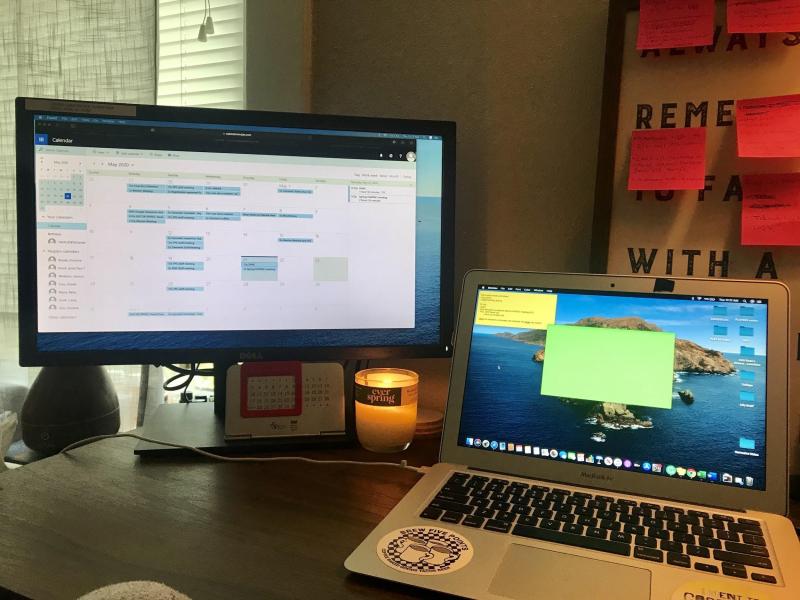The 4 practices that helped me through 15 weeks of Tele-service
As a Health Educator for The PLAYERS Center for Child Health, meeting new people in different environments was an everyday occurrence. This is one aspect of my position that I loved, for I am an extrovert and draw a lot of my energy from those around me. Therefore, when COVID-19 escalated and social interaction became dangerous and discouraged, I found myself in a mindset that was both difficult and unexpected.
I was not aware of the grounding effect that my simple routine provided me. I felt myself losing my ever-present ambition and completing simple tasks became unusually difficult. I missed my family back home in Delaware and wished for time to speed up. I became increasingly frustrated with myself for thinking this way. Most of all, I felt guilty about these feelings. Essential workers and healthcare professionals were putting themselves at risk and working overtime to provide for the community. People were sick and out of work, and I was struggling to check my inbox. I successfully talked myself into a very dark rut only a few weeks into serving from home.
After completely beating myself up, I came to the conclusion that this mindset was not helping me, or anyone.  Instead of making comparisons and berating myself for my decreased productivity, I began to show myself a little compassion. Life as we knew it had been turned upside down and the future was unknown. Tragedy after tragedy of racial injustice and police brutality were simultaneously occurring. The entire nation was hurting; mental depletion was the norm. At the end of my rope, I began to practice mindfulness- that thing I had always been “too busy” for. With a little self-compassion and these 4 simple practices, my mindset entirely changed.
Instead of making comparisons and berating myself for my decreased productivity, I began to show myself a little compassion. Life as we knew it had been turned upside down and the future was unknown. Tragedy after tragedy of racial injustice and police brutality were simultaneously occurring. The entire nation was hurting; mental depletion was the norm. At the end of my rope, I began to practice mindfulness- that thing I had always been “too busy” for. With a little self-compassion and these 4 simple practices, my mindset entirely changed.
1. Journaling- I found this to be a powerful practice that I had been underestimating for years. For me, this was a way to observe my thoughts before I accepted them as fact. I became more aware of the things I was saying to myself and found patterns in my thoughts.
2. Eating a healthier diet- Serotonin is a neurotransmitter that serves many functions in the human body, including playing a role in emotions and happiness. Interestingly enough, 90% of the serotonin in your body is produced in your gut. Therefore, diet has a direct and physiological impact on your mood!
3. Exercise- Don’t underestimate the impact that post-workout endorphins can have on your mind! I found that implementing a daily exercise routine gave my days more structure. It became something I looked forward to after Tele-service each day. Breaking a sweat and getting outdoors provided a much needed pick-me-up after a monotonous day in front of a screen. This also gave me the chance to explore my neighborhood and I found an outdoor workout park where I could safely exercise at a distance.

4. Positive affirmations- Affirmations are positive statements that can help you to challenge and overcome self-sabotaging and negative thoughts. When you repeat them often, and believe in them, you can start to make positive changes. This practice was so beneficial to me that I created a positivity newsletter to share with the rest of the corps members. It was a great way to stay reminded that we are all in this together.
If you have struggled within the past few weeks adjusting to the ever-changing environment around us, know that you’re not alone. Don’t compare yourself to others or their circumstances. Try out these techniques and practice a little self-compassion- you deserve it!

This blog was authored by NHC Florida Member Corinne Bogan.
Bogan serves at The PLAYERS Center for Child Health as a Health Educator.